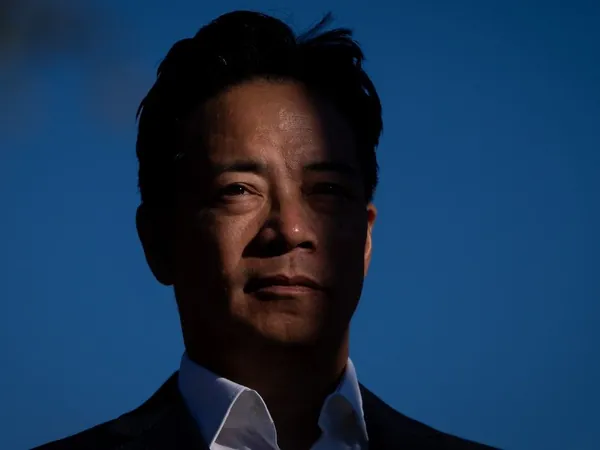
Mayor Ken Sim Calls for End to Supportive Housing Concentration in Vancouver
2025-01-24
Author: Jacques
Introduction
Vancouver Mayor Ken Sim is taking a bold stance against the proliferation of supportive housing in the city, arguing that the current concentration is unsustainable. He states that Vancouver houses an overwhelming 77 percent of the region's supportive housing units, even though it only accounts for 25 percent of the area's population. In response, Sim plans to introduce a motion at the city council to halt the construction of new supportive housing units until additional facilities are developed in other surrounding municipalities.
Concerns About the Downtown Eastside
During a recent community forum, the mayor expressed his concerns about the Downtown Eastside (DTES), which he described as an epicenter for multiple intersecting crises including mental health issues, poverty, and homelessness. He emphasized the need to rethink the "hyper-concentration" of supportive services in this small, densely populated neighborhood, which has long been a focal point for numerous social services and nonprofit organizations.
Impact on Community and Local Business
Sim pointed out that this concentration not only hinders the success of local businesses but also exacerbates conditions for vulnerable community members. He argued that the current framework has created what he termed a "poverty industrial complex," which detracts from the overall health and well-being of the region.
What is Supportive Housing?
Supportive housing, as defined by the city, includes affordable residences that offer on-site support and connections to external services like mental healthcare and substance-use treatment. Since 2019, approximately 1,500 social and supportive housing units have been opened, and about 1,700 more are under construction. However, Sim’s initiative aims to distribute such facilities more evenly across Metro Vancouver.
A Vision for the Future
In an effort to further promote a mix of housing, businesses, and community services, Sim proposed revisiting the DTES area plan. His hope is to create a more diverse and thriving district that accommodates all residents. Speaking at a forum that addressed issues of crime and public safety, he pledged that the city would work with law enforcement to dismantle organized crime syndicates that prey on vulnerable residents in the DTES.
Opposition to the Plan
However, not everyone agrees with Sim's plan. Jean Swanson, a prominent anti-poverty activist and former Vancouver city councillor, believes that while other areas in Metro Vancouver should certainly contribute to the supportive housing dialogue, she is skeptical about whether halting new units in Vancouver will actually encourage other municipalities to step up.
Conclusion
As these discussions unfold, the future of supportive housing in Vancouver remains a contentious topic, balancing the needs of vulnerable populations with the desires of local communities for safety and business viability. Young and old alike will be closely watching how these developments shape the fabric of the city in the coming months.









 Brasil (PT)
Brasil (PT)
 Canada (EN)
Canada (EN)
 Chile (ES)
Chile (ES)
 Česko (CS)
Česko (CS)
 대한민국 (KO)
대한민국 (KO)
 España (ES)
España (ES)
 France (FR)
France (FR)
 Hong Kong (EN)
Hong Kong (EN)
 Italia (IT)
Italia (IT)
 日本 (JA)
日本 (JA)
 Magyarország (HU)
Magyarország (HU)
 Norge (NO)
Norge (NO)
 Polska (PL)
Polska (PL)
 Schweiz (DE)
Schweiz (DE)
 Singapore (EN)
Singapore (EN)
 Sverige (SV)
Sverige (SV)
 Suomi (FI)
Suomi (FI)
 Türkiye (TR)
Türkiye (TR)
 الإمارات العربية المتحدة (AR)
الإمارات العربية المتحدة (AR)